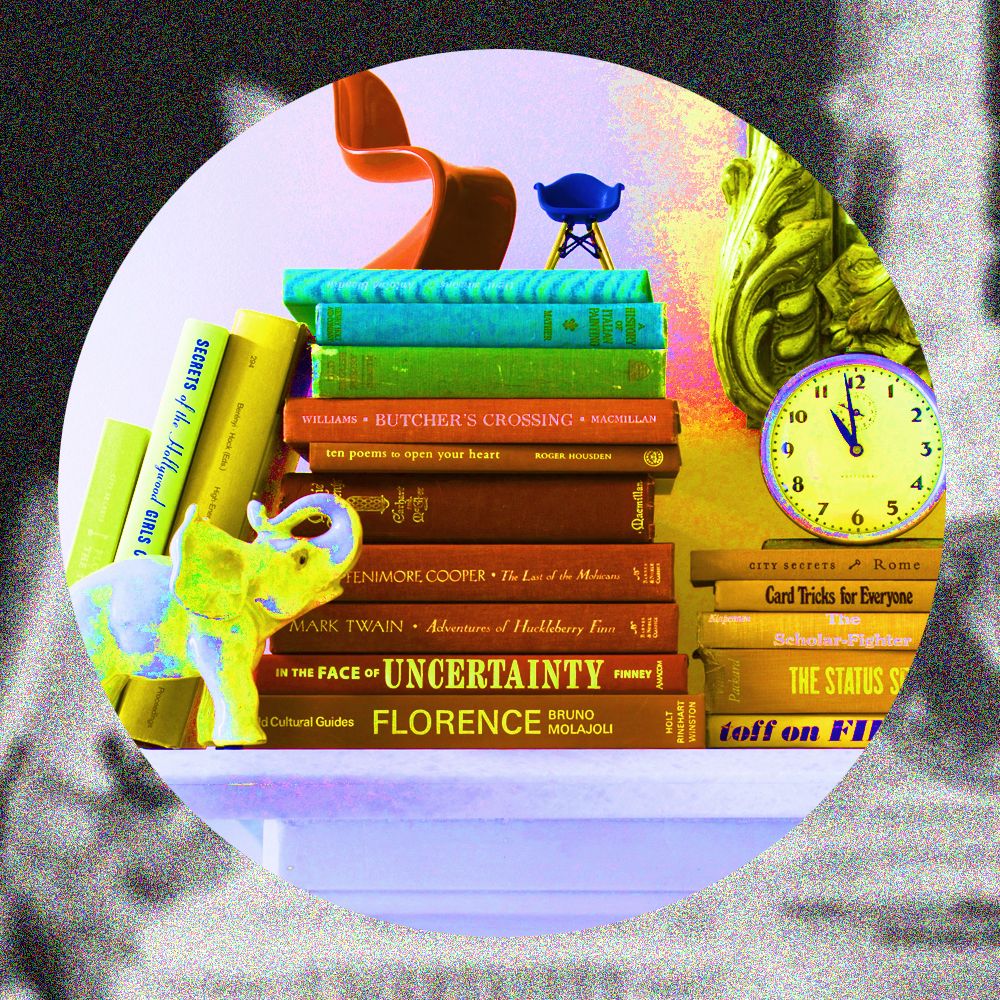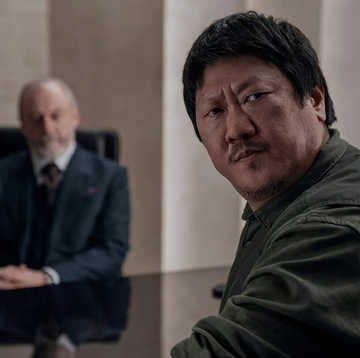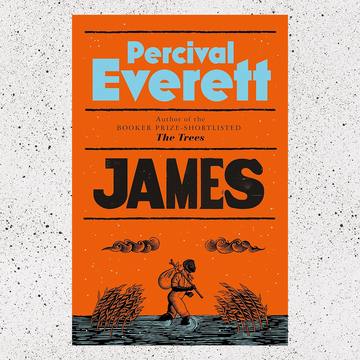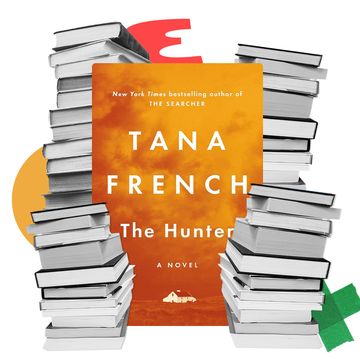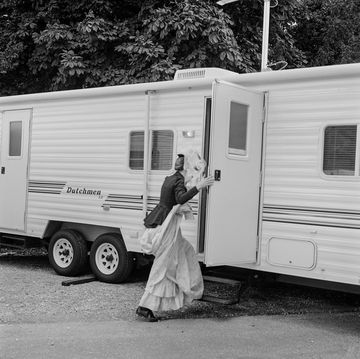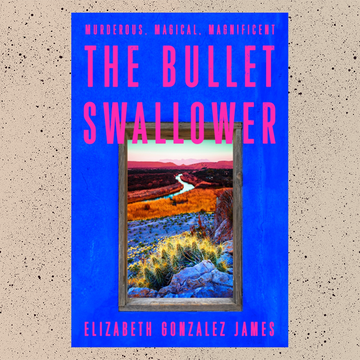Every year many of us make the solemn promise that this will be the one we shake off those terrible bedtime scrolling habits, instead spending the nights reading ourselves into a gentle slumber.
The battle between our phone screen and concentrating on anything else is understandable: devices are designed to drop us in a maze which feels impossible to leave. The longer you click, swipe and tap the harder it feels to find the way out. Reading, then, is an act of rebellion from your phone, and one that needs to be treated as a personal commandment rather than a task squeezed into the dying moments of your day, like taking out the bins. If you don't make proper time to read, or allow yourself the time to find your way into a book, the pleasures and benefits of reading will always remain elusive to you.
Ciara McEllin is always asked how she reads so much, and for advice on how to learn to read more. Perhaps frustratingly for those looking for a hack, the tips are very simple. “I think it’s a discipline,” says McEllin, an agent's assistant at Watson, Little, who reads over 100 books a year, on top of a long list of submissions and new manuscripts for work. “I watched The Sopranos recently and loved it, but it was a battle not be on my phone. In the same way, I like that when I read I am putting effort into being absorbed by one thing.”
Set a timer
Before the pandemic she did nearly all her reading on her commute, making a point of not getting her phone out when she sat down and instead opening a book. These days, with that hour that was built into her day all but gone, McEllin sometimes has to seek out the time and not allow it to be invaded. The bath is often where she gets a lot of her reading in, draining the tub in tiny increments and enjoying a place where, once you're in, you're in. “The other night I realised I hadn’t read anything that weekend and put a timer on my phone and read for an hour, she says.” “I do that when I want to read but know that if I sit down and have my phone out I’ll start on everything else.”
The timer tip also comes recommended by Kate Lotfus–O'Brien, a literary scout for TV and film, and founder of KLO Scouting, who pitches a wide range of fiction and non-fiction to production studios, as well as reading for pleasure in her own time. “For work reading I definitely put a timer on my phone and block out an hour,” she says. “I read 100 pages of three or four different things, and it helps me focus to have a time when I won’t check my emails.”
Notice how differently time passes when reading
Actively disengaging from screen time is something Loftus–O'Brien was made more aware of after reading Jenny Odell's 2019 book, How To Do Nothing: Resisting the Attention Economy, and has become more pertinent in recent years as we spend precious little time away from our screens. In the book Odell writes that, “platforms such as Facebook and Instagram act like dams that capitalise on our natural interest in others and an ageless need for community, hijacking and frustrating our most innate desire, and profiting from them.” Reading it made Loftus–O'Brien aware that “attention is a currency and is finite”, and that where we spent it should be an active decision, or else the choice is taken away from us. “There’s something about the way that you engage with your phone that collapses time. It feels like everything is happening all at once and is quite unpleasant,” she says. “Whereas if you’re reading you feel almost out of time in a nice way.”
McEllin, too, is aware of how much more enjoyable time feels when spent reading, where, instead of “realising you’ve spent and hour and done nothing but flick from app to app and open a couple of long-read articles", when you read for an hour "time feels much slower and more elongated.”
These ideas might already sound familiar if you've spent an evening reading and felt calm settle around you, where you would normally be surrounded by a sense of mania as you scroll, but how do you make it a strict nightly habit and not a one-off? “You have to train your attention span,” Loftus–O'Brien says. “To think: ‘This is going to be rewarding and worthwhile if I pay attention to it and I’m not going to really get into it unless I give it that time.'”
Give up on books. No, really
Both McEllin and Loftus–O'Brien are ruthless when it comes to giving up on a book that they are not enjoying. This means that they keep the momentum going with their reading, rather than picking up the same chapter every night for months on end and reading through gritted teeth. Loftus–O'Brien has a three episode rule for television she watches for work, by which point things should be ticking along enough for you to know if something is for you. “I think something similar is applicable with a book,” she says. “I’m big believer in giving up on a book if it’s not holding your attention. People feel like it’s their moral duty and imperative for their education to finish books.”
McEllin, too, believes that not only is it OK to give up on things you don't like, it will actually mean that you end up picking up more books. “When you read something you love it makes you want to read something else, whether it’s by the same author or something similar," she says “If I have a month where I read 15 books, when I look at them they will all be relatively similar and I can see the links. Whereas last month I read three and they were a bit sporadic and I couldn’t get into anything.”
Rotate between fiction, essays, non-fiction and short stories
Mixing up what you read is another useful piece of advice in order to keep your reading varied and engaging. Having several things on the go is something McEllin often does in order to break up a lengthy non-fiction book, which she can then read over a longer period of time, as well as using short stories and essay collections as “palate cleansers” so that she can “read a few and then go back to something more heavy or longer”. This also means you can break up essay collections rather than swallowing them whole, allowing yourself to dip into the pieces slowly and get more satisfaction out of them.
If you're in a rut of where to look for your next book, Loftus–O'Brien recommends taking stock of what you've enjoyed in the past as a starting off point. “I love reading interviews with writers and often what they say has inspired them is something I’ll want to read,” she says. “People need to let themselves get curious and go on a deep dive of what they previous liked. Then figure out what references the writers of those books were drawing on.”
Make a note of what you've read
Keeping record of what you read is another useful tip in order to have a sense of what you enjoyed, and also to have a reference point for when you want to find your next book. “I take a photo at the end of the month of everything I’ve read and I enjoy remembering where I was and why I was reading those books,” McEllin says.
Remember, it's not homework
The desire to read more is one of the most common resolutions that people make at the start of the year, in a list of self-improvement aspirations alongside losing weight and being nice to your in-laws, but if you want to truly become a reader then changing the common perception of it as homework is the first step. Few would resolve to make themselves watch more television to improve themselves, but Loftus–O'Brien believes that reading "can be really relaxing and entertaining in the same way that watching TV can."
Removing the pressure to feel as though we are going to be tested on the text makes way for this enjoyment too, says McEllin. “It doesn’t matter if you don’t remember the book. If you read something and you don’t have an opinion, or you loved it and someone says something about it, but you don’t know what they are talking about, that’s fine too.”
